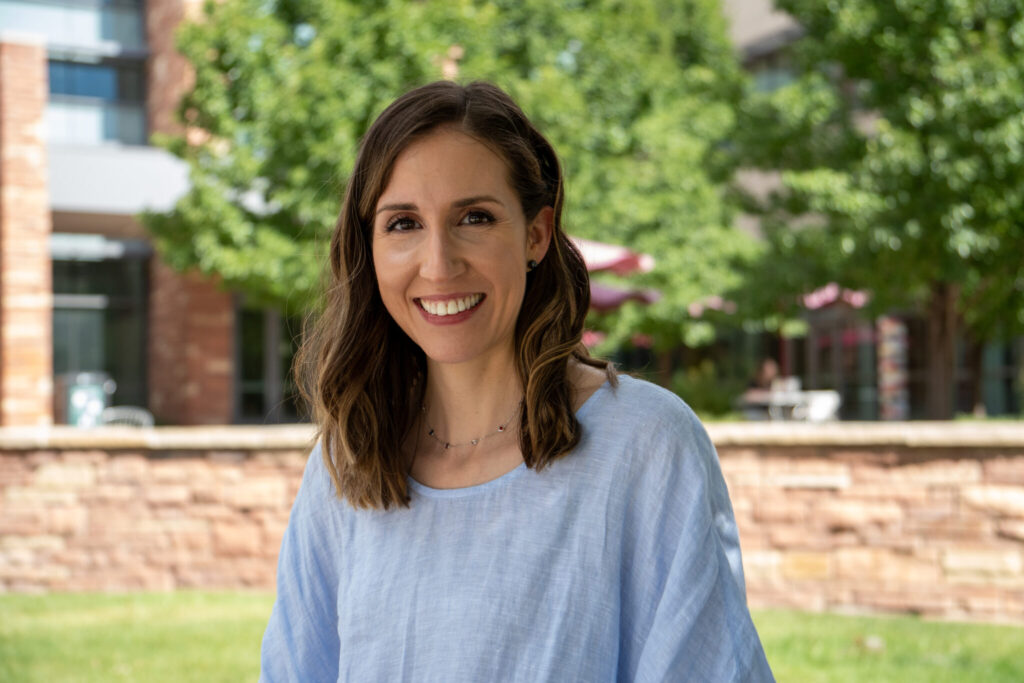
Ana Gutierrez-Colina, assistant professor in the Department of Human Development and Family Studies at Colorado State University, examines ways to improve the health of minoritized youth and those who are disproportionally affected by chronic stressors and adversity, with a specific focus on Hispanic youth and families living in rural areas.
Tell us a bit about yourself!
I graduated from the University of Pennsylvania with a B.A. in psychology and went on to work as a research assistant at the Children’s Hospital of Philadelphia. I completed my doctoral training in clinical psychology at the University of Georgia and my residency at Cincinnati Children’s Hospital. After residency, I stayed on at Cincinnati Children’s to complete an NIH-funded T32 postdoctoral fellowship in pediatric psychology and health self-management. Outside of academia, I enjoy exploring the Colorado outdoors with my husband and daughter, camping, and traveling internationally to visit my family.
What brought you to the Department of Human Development and Family Studies at CSU?
I think a combination of things brought me to HDFS, including its focus on research, quality teaching, and community engagement, the exceptional ongoing work of faculty and students, the potential collaborations I envisioned with other faculty members, and the department’s commitment and support of work focused on advancing health equity in underserved and rural communities.
What are your research and/or teaching interests, and how did you get interested in that topic?
Broadly, my program of research aims to improve the health and well-being of youth and families from historically underserved and marginalized backgrounds. My interests lie at the intersection of socioemotional, cognitive, and contextual factors that underlie health behavior and health behavior change. To date, my work has sought to understand how health barriers (e.g., depression symptoms, executive dysfunction) function as mechanisms and potential intervention targets for core health behaviors (e.g., physical activity, eating, sleep, medication-taking). I am particularly interested in how these modifiable barriers manifest among minoritized youth and those who are disproportionally affected by chronic stressors and adversity, with a specific focus on Hispanic youth and families living in rural areas. Ultimately, my goal is to co-develop, in collaboration with communities and stakeholders, digital evidence-based interventions that optimally promote wellness, resilience, and health outcomes.
What is your teaching philosophy?
I embrace a developmental approach to teaching and strive to create a classroom environment that prioritizes safety, inclusiveness, and support for meaningful learning. I believe that every student enters the classroom with unique and fundamental knowledge derived from their lived experiences, cultures, and backgrounds, all of which are invaluable assets in the learning process. In my courses, I work towards leveraging this diversity and richness to cultivate intellectual curiosity, introspection, critical thinking, and collaborative work.
What is your favorite thing about CSU so far?
My favorite thing about CSU is its vibrant community and its vision for the future!
The Department of Human Development and Family Studies is part of CSU’s College of Health and Human Sciences.